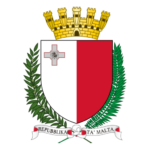L-E.T. Myriam Spiteri Debono
Il-President ta' Malta
In-Nutar Myriam Spiteri Debono hi l-ħdax-il President tar-Repubblika ta’ Malta, permezz ta’ Riżoluzzjoni mgħoddija unanimament mill-Kamra tar-Rappreżentanti nhar is-27 ta’ Marzu 2024.
Myriam Spiteri Debono kienet l-ewwel, u s’issa l-unika, Speaker mara tal-Kamra tar-Rappreżentanti. Twieldet u trabbiet ir-Rabat, Għawdex, fejn attendiet skejjel tal-istat, u wara fl-Università ta’ Malta gradwat bl-unuri fil-Letteratura u l-Lingwistika Ingliża, u wara bħala Nutar Pubbliku. Kienet waħda mill-ewwel nutara nisa.
Kienet Chairperson tal-Bord tal-Koperattivi u kienet ukoll membru tal-Gender Equality Commission meta din ġiet stabbilita. F’din il-kummissjoni kienet attiva ħafna fil-kumitat li kien jeżamina l-ilmenti dwar diskriminazzjoni u harassment.
Myriam Spiteri Debono kienet Chairperson tal-Press Ethics Commission fl-ewwel 3 snin tal-eżistenza tagħha, u kienet strumentali biex tfasslu l-ewwel bylaws u rules of procedure ta’ din il-kummissjoni.
Bdiet tkun attiva fl-isfera politika meta kienet għadha studenta u kienet waħda mill-fundaturi tal-Għaqda Studenti Soċjalisti. Għal 16-il sena sħaħ, il-Konferenza Ġenerali tal-Partit Laburista eleġġietha fuq l-eżekuttiv tal-partit. Kienet ukoll għal ħafna snin Segretarja Ġenerali u President tal-Għaqda Nisa Laburisti.
Bħala President tal-Għaqda Nisa Laburisti u bħala Speaker, ipparteċipat f’diversi konferenzi barra minn Malta fejn kien hemm drabi fejn ġiet magħżula biex tmexxi l-konferenza.
Mill-2009 sal-2024 kienet membru tal-Bord ta’ Rakkomandazzjonijiet għall-Onorifiċenzi tar-Repubblika.
Myriam Spiteri Debono kienet nutar prattikanti. Hija miżżewġa lil Anthony Spiteri Debono, omm ta’ tlett itfal, Elena, George u Maria Kristina, u nanna ta’ erba’ neputijiet, Alexandra, Paul, Pippa u Beppe.
